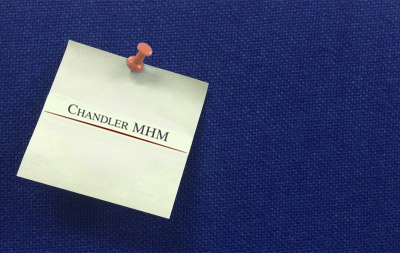
jutharat.a@mhm-global.com

pranat.l@mhm-global.com
 Chandler MHM Limited
Chandler MHM Limited36th Floor, Sathorn Square Office Tower
98 North Sathorn Road Silom, Bangrak, Bangkok 10500
Thailand
www.chandlermhm.com
Sections 50 and 57 of the Trade Competition Act B.E. 2561 (“Act”), along with the Act’s similarly- worded superseded predecessor (the Trade Competition Act B.E. 2542), impose a blanket prohibition against exclusivity. This is currently supplemented by a broad, yet somewhat unspecified, set of qualifications. As a result, there is uncertainty in the market as to what is exempted from this blanket prohibition.
On 29 May 2020, the Office of Trade Competition Commission (“OTCC”) for the first time published details of the famous M-150 case, i.e. its historical prosecution of the M-150 Company Limited for enforcing exclusivity against its buyers under the Act’s predecessor. This had long been a point of discussion for industrial operators, lawyers, and academics alike, as all had understood, to a large extent, that the case was about exclusivity imposed on some distributors.
However, no one was able to effectively pinpoint, or even guess, the boundaries of lawful exclusivity, or when exclusivity might be acceptable for and deemed exempted by the OTCC. This was for a number of reasons:
- lack of available facts, precedent cases and the confidential nature of the M-150 case itself; and
- there are numerous types of relationships between the brand owners and distributors in Thailand, each with a unique set of facts, relationship characteristics, commercial justifications, and circumstances.
The release of the M-150 case details has shed light on this and enables us to reasonably narrow down the field and therefore reduce confusion. Based on the facts recently released by the OTCC, we can summarize the issues as follows:
- M-150 had exclusivity with the primary distributors supported by a written agreement, whereby the distributors could not deal with competing products of other manufacturers. This arrangement was not subject to prosecution as the condition was in writing.
- The distributorship of a primary distributor was terminated following a written exclusivity provision having been breached after a warning was ignored. This also was not prosecuted.
- Exclusivity was enforced against the sub-distributors who did not have any written agreement with M-150, which rendered M-150 liable under the law. This was because the exclusivity was not in writing and was deemed as unfair, among other factors.
Besides the primary issue of exclusivity, the publication of the M-150 case details also shed light on other minor provisions of the Act. It is possible that prosecutions may not be brought in particular circumstances as outlined below.
- Mandating of resale price may be acceptable if the lack of a mandated price will result in a distortion of the price structure in the market.
- Products with a price difference of only 20% may be deemed to belong to two different markets if the products are largely not interchangeable from the consumers’ perspective.
However, regardless of the above it is not possible to simply conclude that a particular case of exclusivity, termination due to a breach of an exclusivity provision, or mandating of a resale price is exempt under the Act. In the same way we cannot assume that a minor price difference will place certain products in a different market under the Act.
If you would like to discuss the issues raised in this article further or related issues, please contact the authors listed in the right-hand column.
This article is intended to highlight an overview of key issues for ease of understanding, and not for the provision of legal advice. If you have any questions about this newsletter, please contact your regular contact persons at Mori Hamada & Matsumoto or Chandler MHM Limited. If you should have any inquiries about the newsletter, or would like more information about Chandler MHM Limited, please contact bd@mhm-global.com.
















